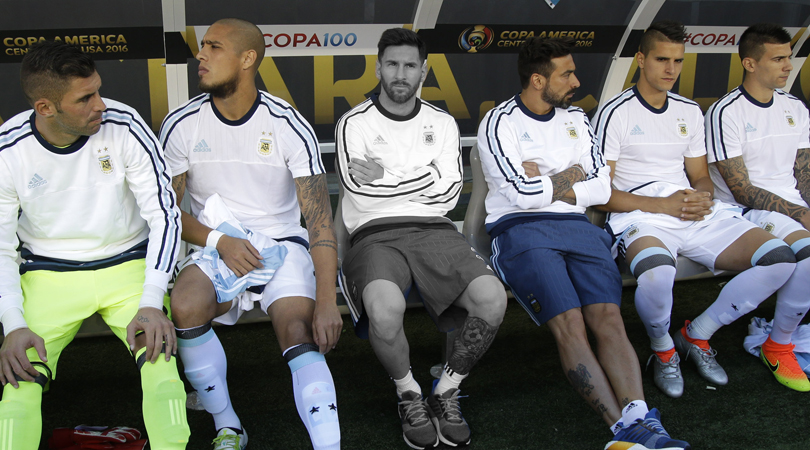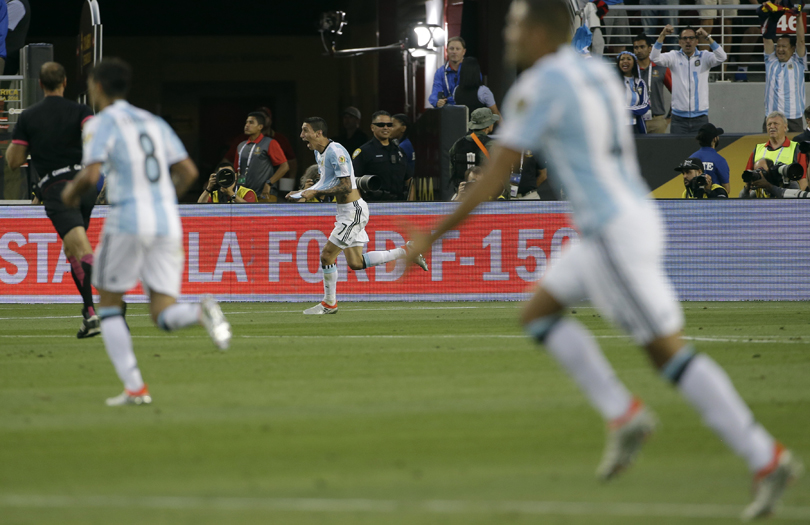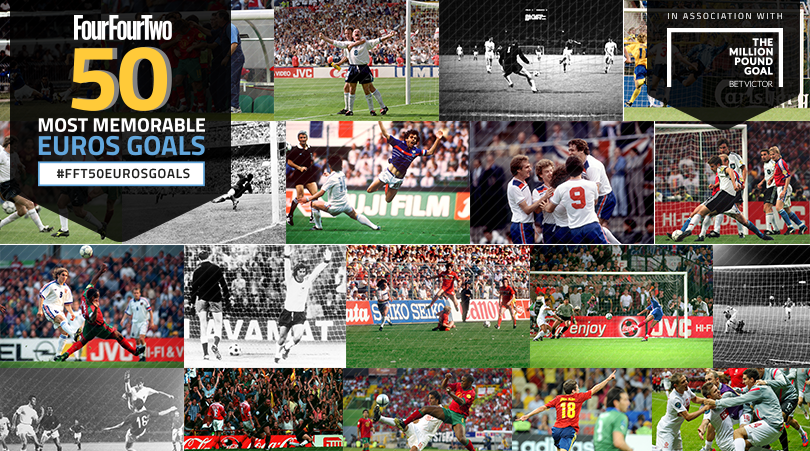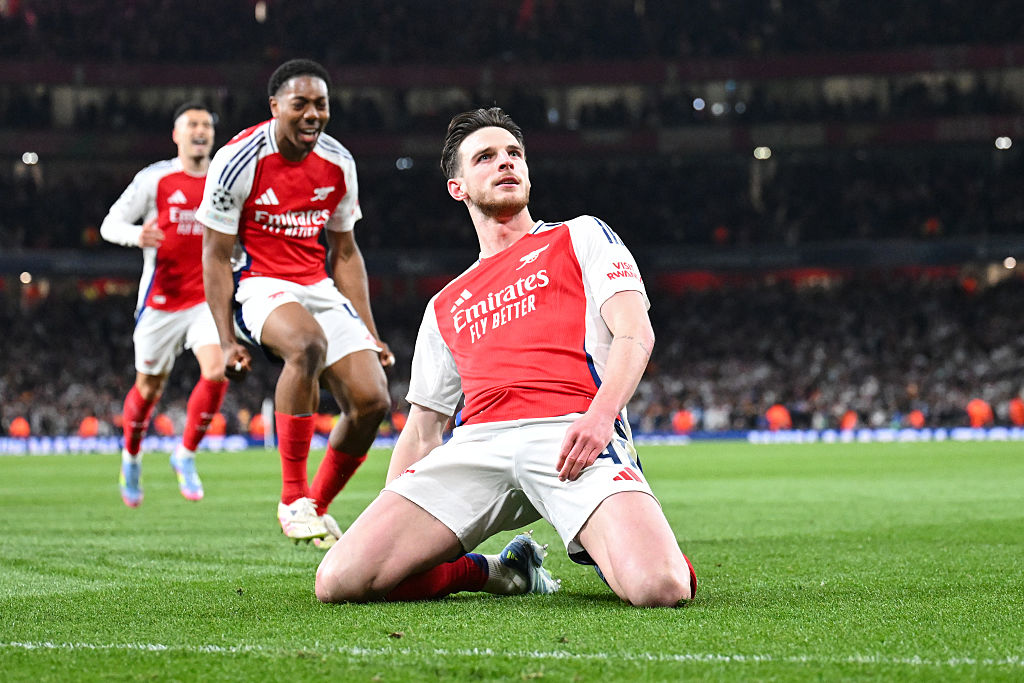Why Argentina might be better without Lionel Messi
It seems a silly statement, but FourFourTwo USA's Richard Farley notes that the conclusion provided on Monday wasn't a negative one...

Far down the list of reasons that Angel Di Maria was Monday’s focus against Chile – behind the inspiration of his departed grandmother, or a performance reminiscent of his Champions League-winning peak – are the implications for Argentina. On a night when la Albiceleste’s most renowned player was on the bench, it was impossible to overlook the fluid, balanced, Di Maria-led team that picked apart South America’s reigning champions.
If Argentina can do this with Lionel Messi on the sidelines, what can they do when the world’s best player returns to the starting lineup?
That’s the fair question, one that assume an elite player will augment a talented team’s core. For years, though, questions like that have taken a more sinister form, one that, after Monday’s display, may not be entirely unfair: are Argentina a better team when its captain isn't on the pitch?
Awkward question
The question is impossible to answer with any certainty, and given Messi’s obvious value, it takes an analytical contortionist to deny against his worth. Still, there was something undeniably attractive about how Argentina went about Monday’s game, a method that would have been different if Messi was in the XI.
Instead of favouring Di Maria’s left side, Argentina would have used Messi as their focal point. Chile would have planned around him, congested play in the middle, and left a team without space-creators like Neymar and Luis Suarez – Messi’s Barcelona team-mates – bogged down. Perhaps Argentina would have still won, as happened in Santiago with Messi in March, but they probably wouldn’t have looked as beautiful.
At times, that’s what Monday’s 2-1 victory over Chile was. The in-to-out build-up that broke down Chile’s defence and produced the two goals could have been orchestrated on a white board; a blistering first-half counter-attack, one ending with Gonzalo Higuain going just wide of the left post, showed Di Maria and Ever Banega at their creative bests; the number of times Argentina turned Chile right-back Mauricio Isla and played crosses from behind the defence.
Get FourFourTwo Newsletter
The best features, fun and footballing quizzes, straight to your inbox every week.
It’s hard to imagine there’d be as many if the team was playing through its right-to-central star. Argentina’s play wasn’t such that would rival John Cruyff’s Dutch teams for aesthetic value, but compared to many important games featuring Messi, Monday was a relative Rembrandt.
Fitting the system
Argentina’s manager Gerardo Martino acknowledged his team’s differences after the match. When asked why his wingers, Di Maria and Nicolas Gaitan, switched flanks in the first half, Martino explained the players “don’t have a problem” playing on both sides, and those players are given “total freedom to move”.
There is, however, an exception to that rule.
“The only one that we keep on the right when he is on the field is Leo,” Martino explained. “It's hard when he is on the left, because all his career he has never occupied that area.”

All 24 Euro 2016 teams profiled, plus must-read features with FourFourTwo
When Messi is in, the system becomes more rigid. When he’s out, movement is encouraged.
Those, however, are aesthetic concerns. Most prefer to see football played at a higher pace, with more player and ball movement, and with a greater number of chances. In a way, those are biases, ones Monday’s game played into. Without all the focus on one star, the game became more fluid, allowing a world-class talent like Di Maria to have a game-defining performance.
When Messi plays, teams put a greater emphasis on staying compact, both across the width of the field and over its length. They become more risk-averse, focusing on not getting stretched while congesting the middle, where Messi will hurt you. Teams sacrifice what they want to accomplish elsewhere and are willing to make the game ugly. Against Messi, that’s the only way you have a shot.
Unfortunately for the Barcelona star, that dynamic has become a type of curse. Still without a World Cup or Copa America victory, Messi’s value to la Albiceleste remains debated. For his national team, he doesn’t have the CV-defining team honours he’s achieved at club level, and until he does, critics will claim he’s actually two different players: one when he wears red and blue; another when he adorns blue and white.

Strangely, nobody ever considers what Argentina would be like if Messi didn’t wear their colors. For all the lack of major honours bemoaning, few bother to note Argentina likely wouldn't be the world’s best-rated team without the world’s best player – without the man destined to become his country’s leading goalscorer; without a player with more World Cup and Copa America man-of-the-match honours than any in his nation’s history.
Find a way
Argentina are still a team which, built around Messi, have been to the finals of two of the world’s three biggest tournaments in the past 24 months: the World Cup (2014) and Copa America (2015). They are still a team which, built around Messi, is ranked first by FIFA and has the world’s highest Elo rating. They are still a team which, after 11 years and 107 games with Messi in the squad, elects to keep one player as its focal point.
Thanks to our biases, though, aesthetics often trump logic, allowing performances like Monday’s to sway the debate surrounding Messi’s international value. Thankfully, no amount of debate about national-team quality has convinced the likes of Martino, Alejandro Sabella or Alfio Basile – not to mention club bosses like Pep Guardiola and Luis Enrique – that Messi is anything but a team-defining talent.
Only one of those names was at Levi’s Stadium on Monday night, and for his part, Messi’s value was unchanged. Asked about the conundrum – about whether Argentina play better without the best player in the world – Martino didn’t entertain the notion.
“We’re our best when Messi is in the team,” Martino said. “Our possibilities of winning the Copa are always higher when he is playing.”


